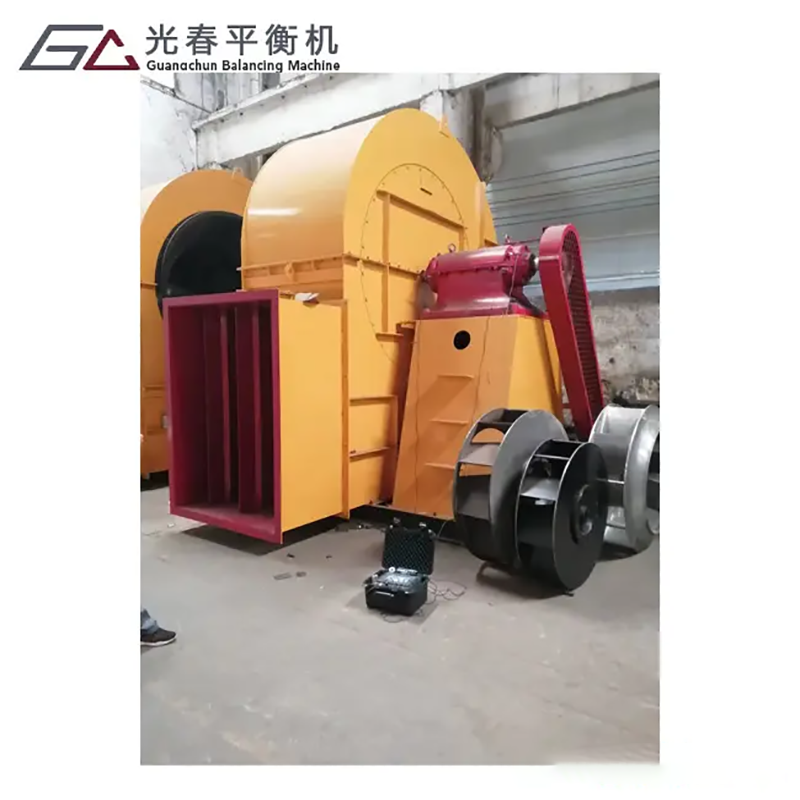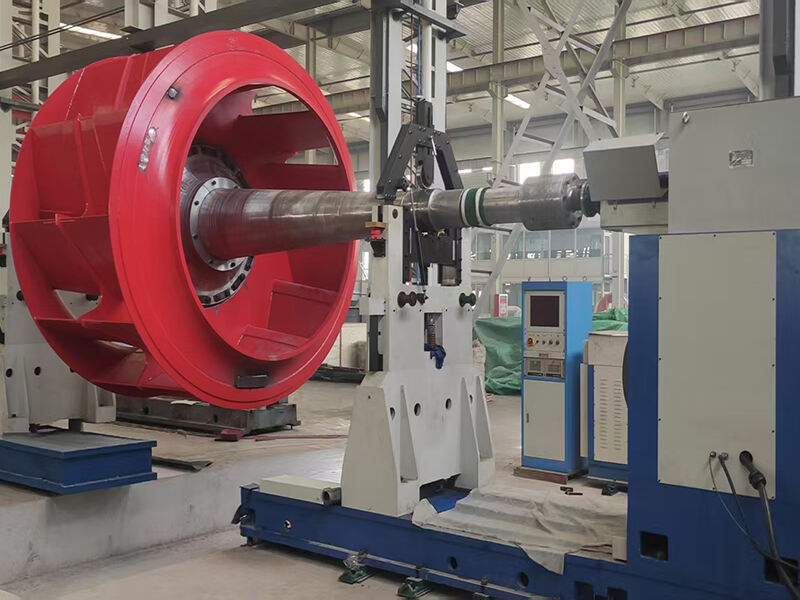HVAC systems maintain modern buildings through their Heating Ventilation and Air Conditioning processes. HVAC systems function by controlling internal environments for human comfort as well as health purposes and production efficiency. The operation of these systems heavily depends on fans because their optimal performance demands flawless operation. The HVAC industry depends on fan balancing machines because these tools accomplish three essential benefits: precise operation combined with enhanced energy efficiency and extended equipment service duration. This paper investigates the vital position of fan balancing machines which emphasizes both exact fan blade balancing methods along with their substantial energy efficiency and equipment service life benefits.

The Role of Precision in Fan Blade Balancing
When it comes to HVAC system performance construction of balanced fan blades plays an essential role. Accurate execution of this process requires absolutely no compromise. Operations of unbalanced fan blades produce major issues which include excessive vibration and reduced energy efficiency due to their improper balance.
When fans remain unbalanced they apply irregular centrifugal forces on systems that produce dynamic imbalances which threaten system components to become damaged. These imbalances damage bearings motors along with mounts because of their vulnerability. The HVAC system performs less efficiently and loses its temperature regulation capacity because imbalanced fans cause airflow to become uneven.
The procedure of precision balancing requires detailed mass distribution adjustments for fan blades where each blade needs exact weight measurements followed by perfect alignment procedures. Sophisticated fan balancing machines employ sensors together with algorithms to sense very tiny irregularities that occur in fan blade assemblies. The machines are capable of executing minimal balancing corrections to achieve precise blade alignment. The required precision at this level affects both the mechanical performance of the fan device and the operational efficiency of the complete HVAC system.
How Fan Balancing Impacts Energy Consumption and Longevity
The operation stability of a system depends on fan balance which directly affects both energy efficiency and system longevity. Fans with poor balance need more power to keep their operational performance equal to fans with proper balance. Building managers and homeowners share equal concern about energy efficiency because the enhanced energy needs lead to higher costs for operation.
Energy Consumption
The vibrations produced during fan operation with unbalanced blades increase motor resistance while the fan is operating. Higher amounts of energy will be needed because the motor must dedicate additional power to fight the imbalance. A properly balanced fan operates without friction so it uses lower energy while performing its operation. The determination to conserve energy together with environmental protection makes fan balancing essential for modern power consumption needs.
Longevity
HVAC system lifespan depends on consistent balance within its parts. Systemwide component failure occurs prematurely because unbalanced fans produce resonating vibrations. Motor assemblies along with bearings suffer maximum damage because of excessive vibration forces. System longevity decreases when persistent stress factors act upon it nonstop.
Systems equipped with balanced fans work smoothly alongside other components which leads to reduced mechanical breakdown and results in longer expected service time for HVAC equipment. The reliability of HVAC systems increases with fan balancing because it stops wear and tear and prevents substantial maintenance costs that would otherwise need replacement procedures.
The operation of balanced fans produces reduced noise output. The discomfort of building occupants and their productivity reduces due to undesirable noise created by unbalanced fan operation. Settings that include hospitals and offices and schools require quiet conditions as a fundamental need. Smooth operation in balanced fans prevents both turbulence formation and related noise emissions.
Conclusion
Fans play an integral role in maintaining balance, energy efficiency and longevity of the HVAC system. To avoid mechanical imbalance, accuracy in fan blade balance is necessary that can increase vibration, noise and uneven airflow. It appears that minor flaws can have significant impact on energy consumption, increase operating costs and reduce the lifespan of HVAC components.
By investing in advanced fan balancing machines, building managers can ensure their HVAC system to operate at extreme efficiency. It not only preservations energy and reduces operating costs, but also increases the lifetime of equipment, protects against disruptive breakdown and expensive repair. In an industry where reliability and efficiency is paramount, the importance of fan balancing machines cannot be overstated. They, in fact, are essential for optimal functioning and maintenance of modern HVAC systems.




